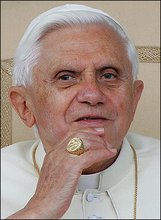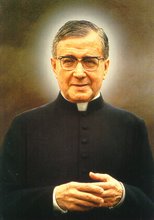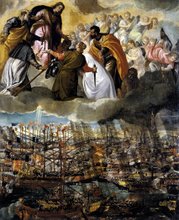
"There is no home-coming like the home-coming into an English house in their windy dusk, and it is best of all when one so comes home from off the sea." Hilaire Belloc
I always find this time of year somewhat melacholy here in the land of the free and the home of the brave. Memories come flooding back of the preparation for Christmas many years ago. Having not spent a Christmas with my family for fifteen years I find, as I get older, that I miss the English Christmas more than ever. Of course, the rampant commercialism is just as present as it is here, and England is now a bleakly secular and post-Christian land. But the celebration of Christmas has stayed fairly stable - people tend to have the days from the 25th to the New Year off, the turkey of Christmas Day becomes turkey pie on Boxing Day, turkey sandwiches and, a particular favourite when I was in the Order: turkey curry. People tend to visit one another and, even though they are all stuffed full of Quality Street (a particular candy consumed in vast quantities around Christmastide), the idea, if not the reality, of the Octave of Christmas still exists by the very fact that everyone is, in fact, on holiday. To allow the full level of melancholy to develop, I find that putting on a CD of the St. John's College, Cambridge Choir singing Advent carols, pouring a small (it IS Advent) warming glass of Applejack (poor man's Calvados) achieves the desired effect. Listening to Felix Mendelssohn's 'Ave Maria' sung so magnificently, as only an Anglican choir can, I find myself coincidentally - or not coincidentally at all, as my house guest of last week, the great Blessed George of Park Avenue writes in his new book (available from fine booksellers) - reading the music column of 'The Spectator.' Peter Phillips, who is, I believe, an Anglican, writes approvingly of Pope Benedict's concentration on the musical life of the Church. He makes the important, and over-looked point, that, in the present Holy Father we have the first Pope in many centuries who is a fine musician. With that coincidence dealt with, I return to my ruminating over Christmas past, not in the manner of Mr. Scrooge, more in the manner of Belloc. One of his finest essays, only available if you have an old copy of his 'Selected Essays,' is entitled 'A Remaining Christmas.' He describes a typical English Christmas as it would have been celebrated in his home between the Wars. He describes all the rituals; the meal taken on a table made "while Shakespeare was still living, and when the faith of England still hung in the balance." The children of the village come to receive their gifts, the three Masses of Christmas are said by the priest-guest in the private Chapel and the festivities begin. The Twelve Days of Christmas are kept, with decorations only coming down on Epiphany evening. Belloc continues with his description thus: "This, which I have just described, is not in a novel or in a play. It is real, and goes on as the ordinary habit of living men and women. I fear that set down thus in our terribly changing time it must sound very strange and, perhaps in places, grotesque, but to those who practice it, it is not only sacred, but normal, having in the whole of the complicated affair a sacramental quality and an effect of benediction: not to be despised. Indeed, modern men, who lack such things, lack sustenance, and our fathers who founded all those ritual observances were very wise."
In a "terribly changing time," perhaps what we need most is the "sacramental quality and an effect of benediction" which the ancient rituals of Christmas past encompass, and I, for one, am not surprised the melancholy is so strong at this time of year with the memory of what I once experienced - and maybe will again?



























































